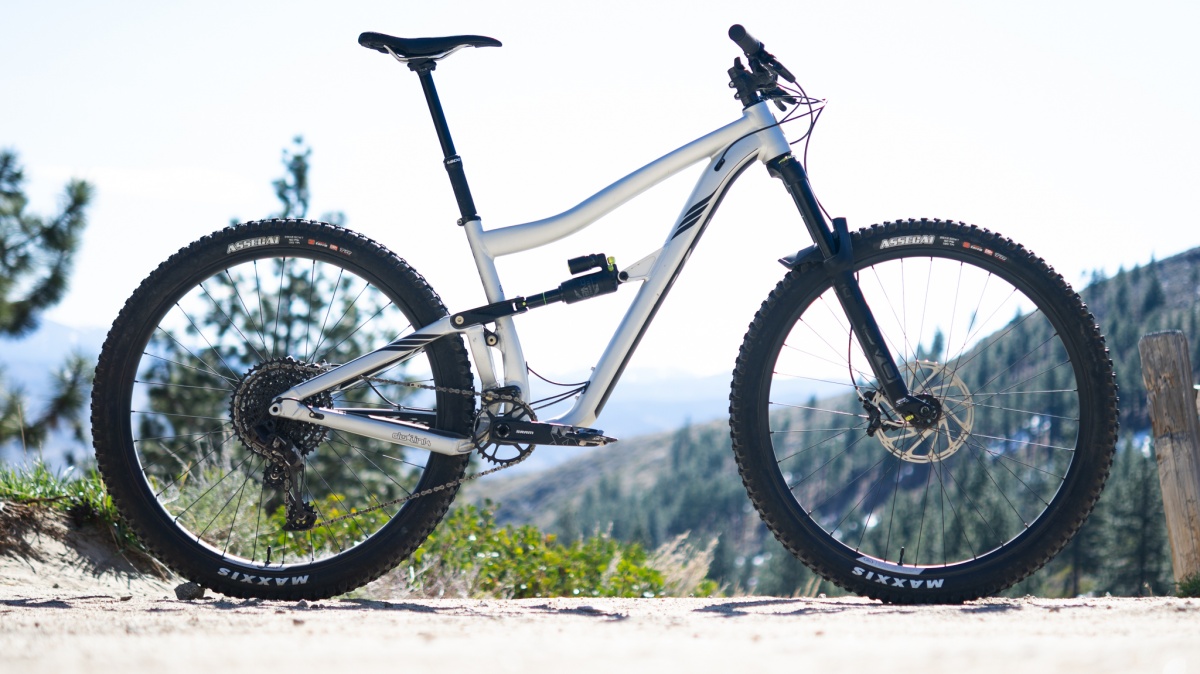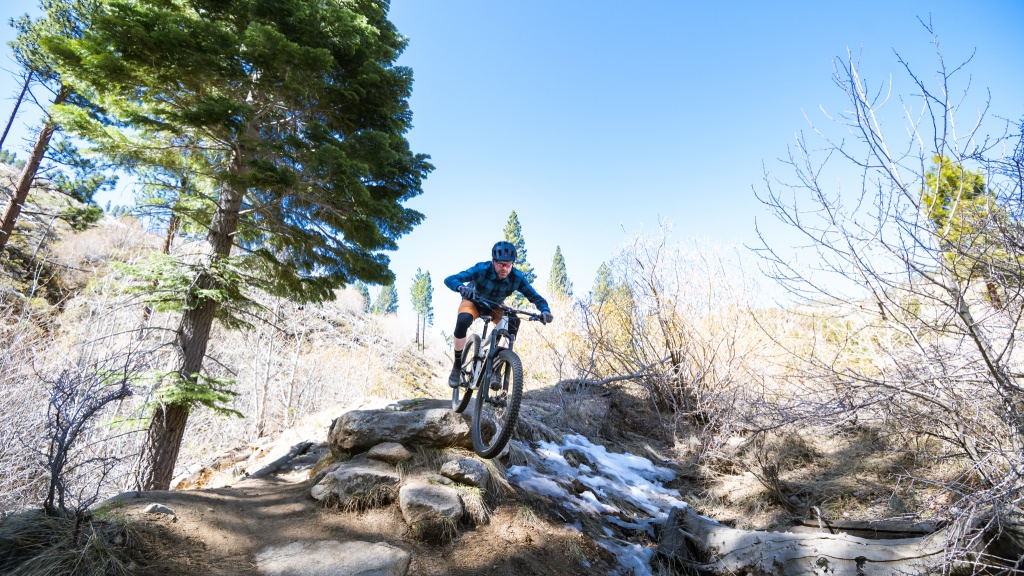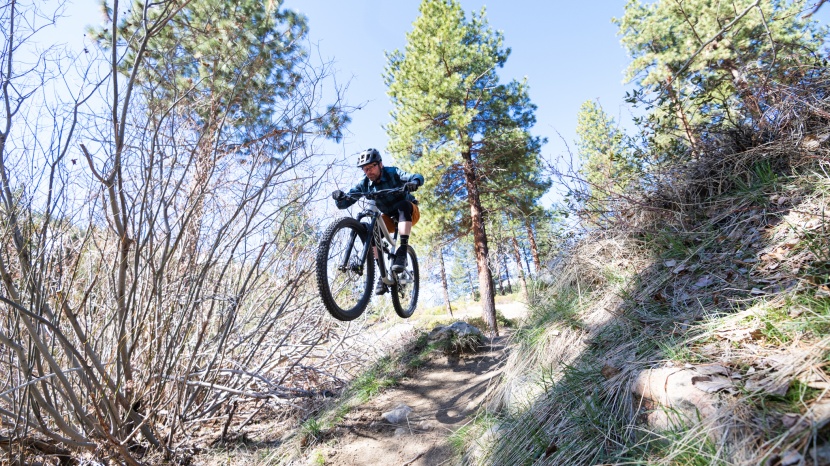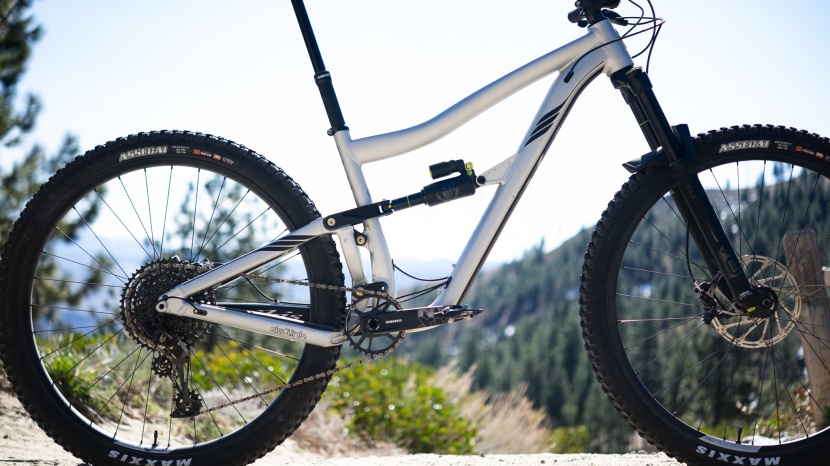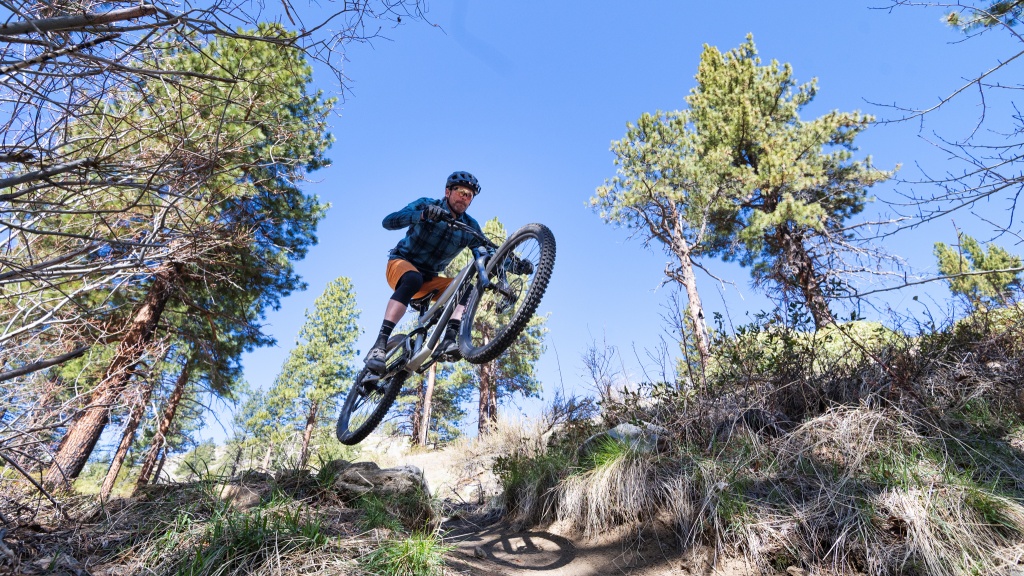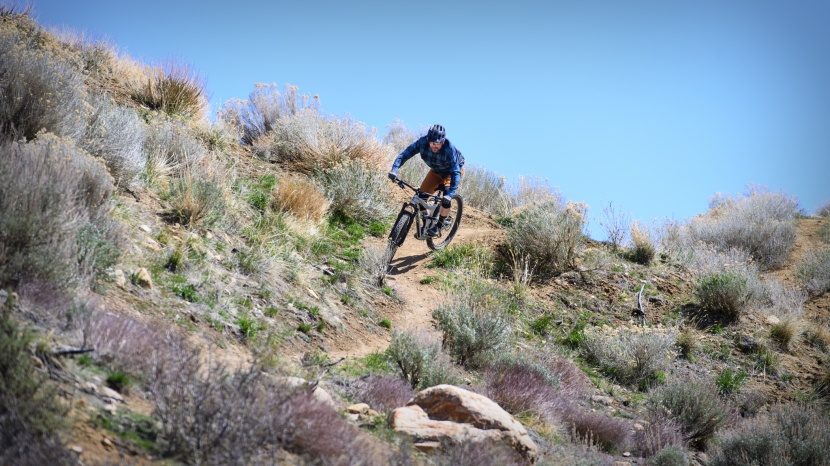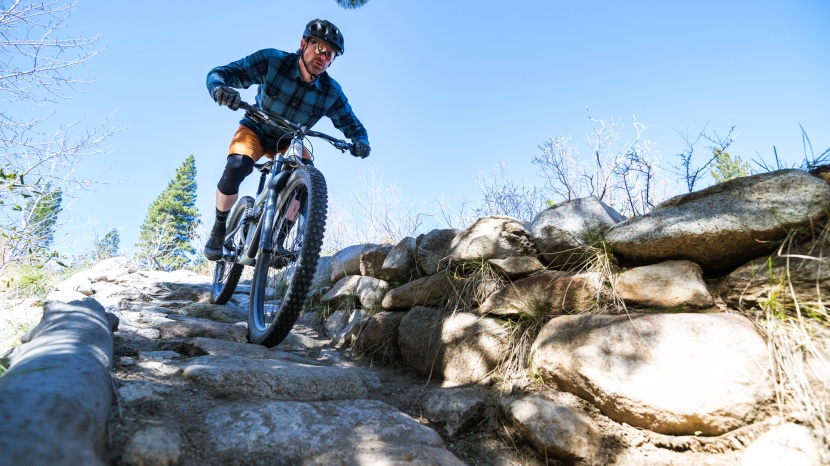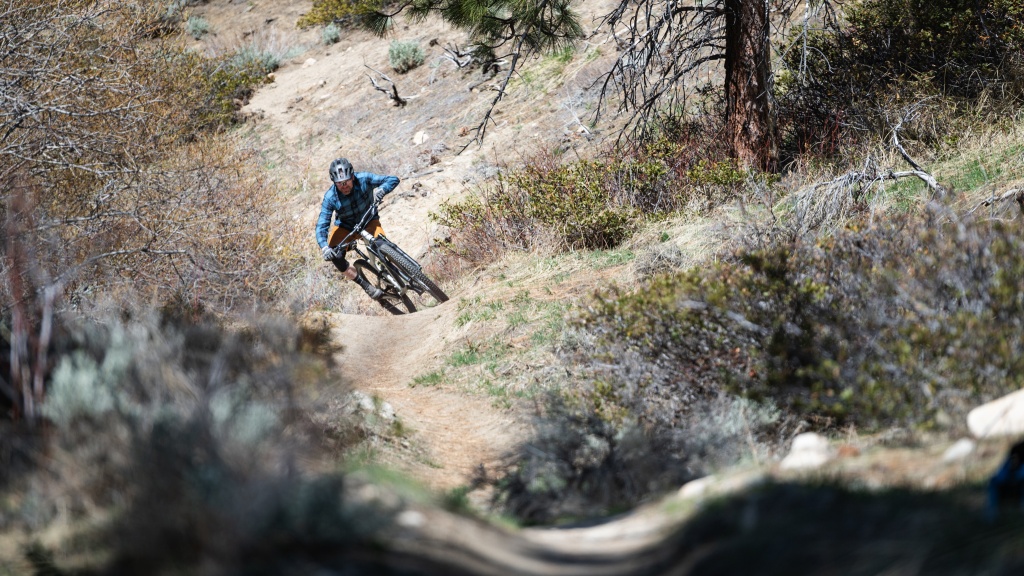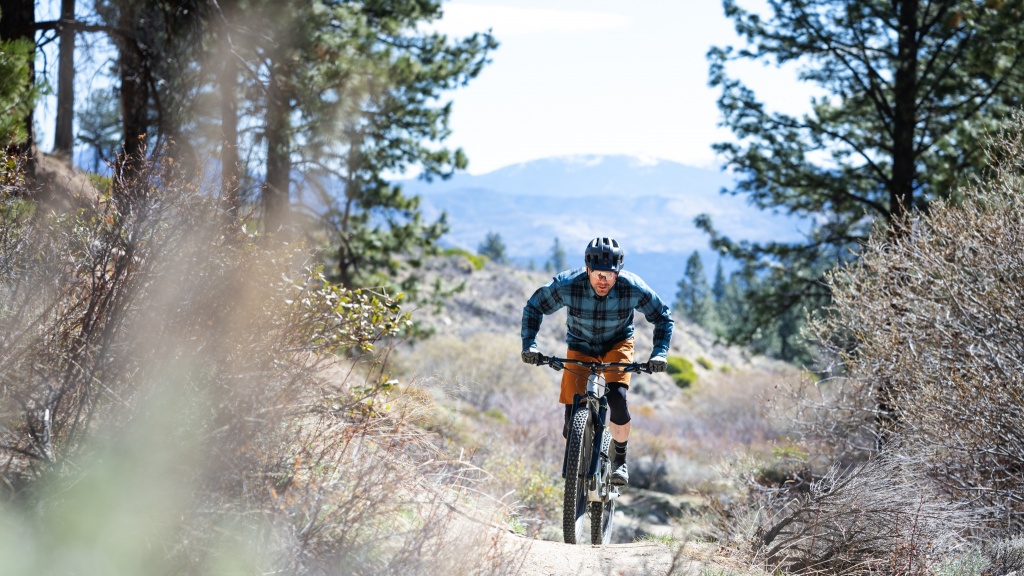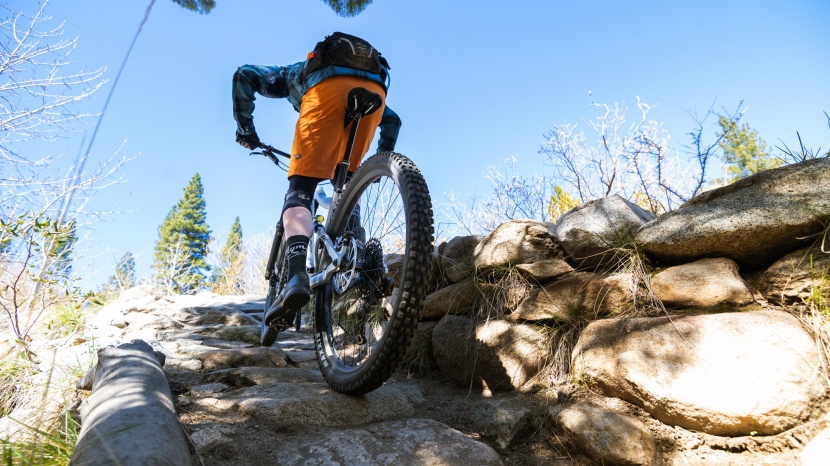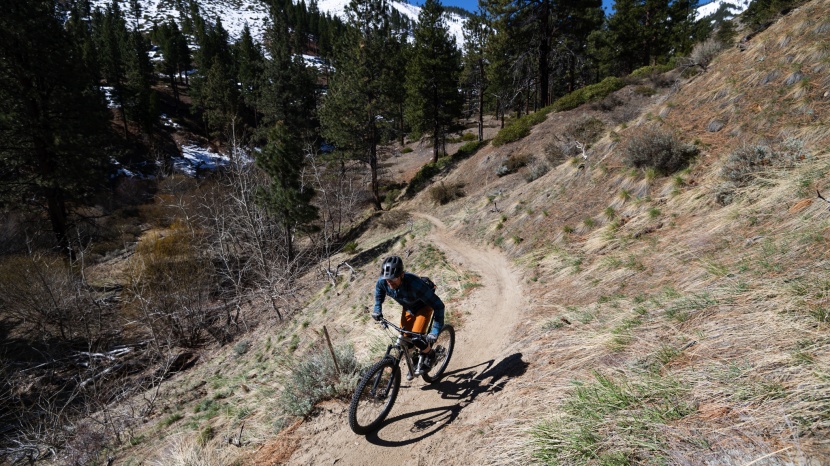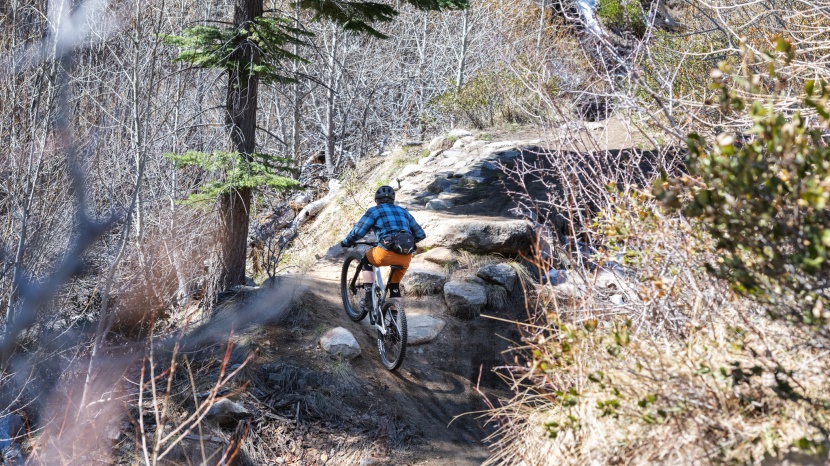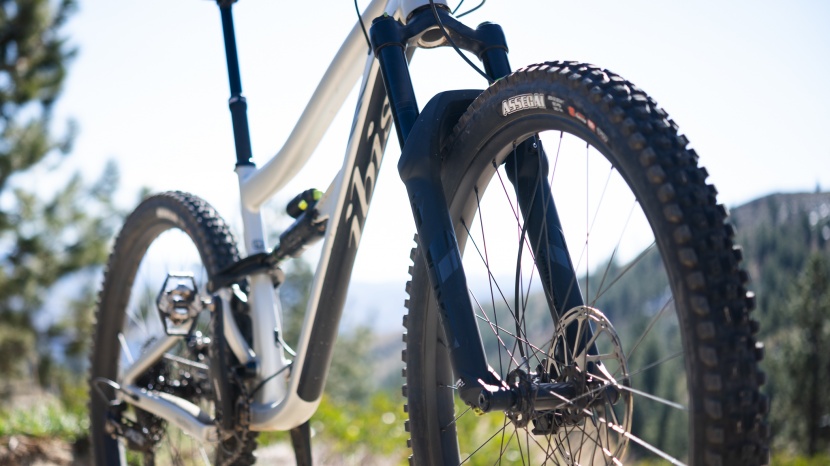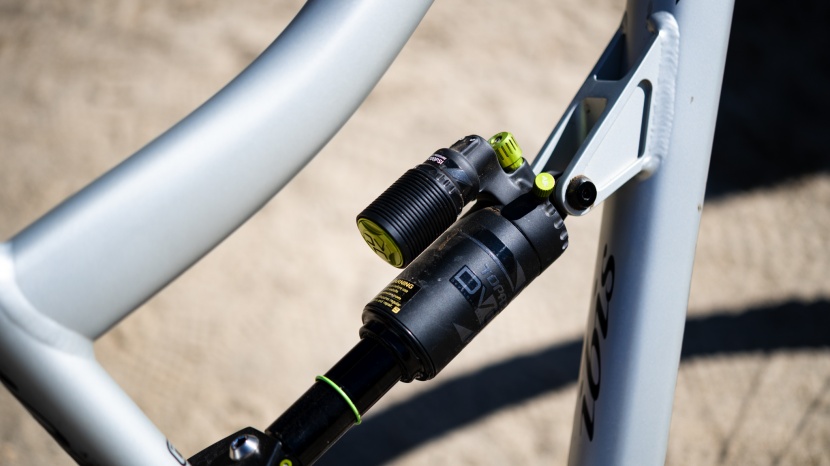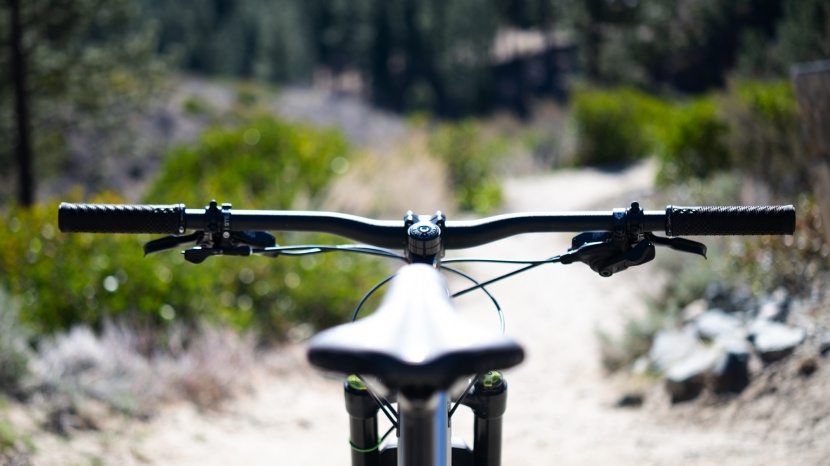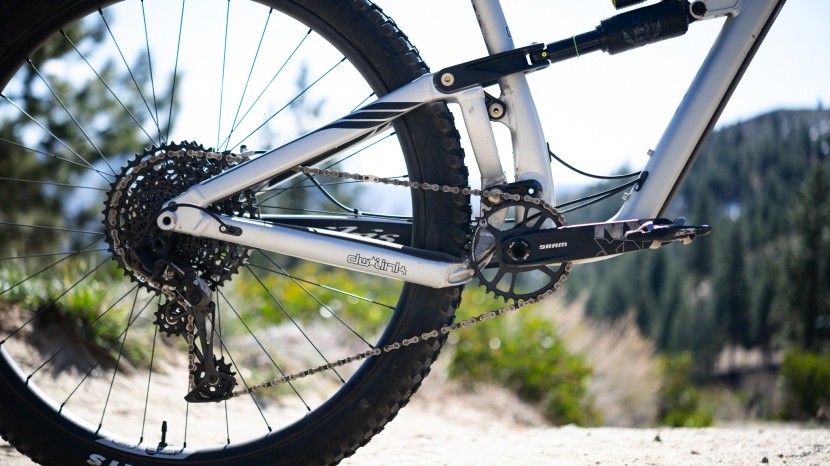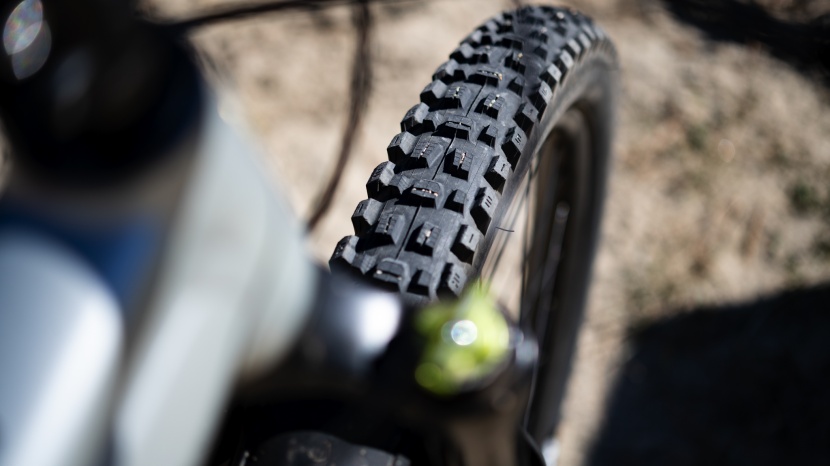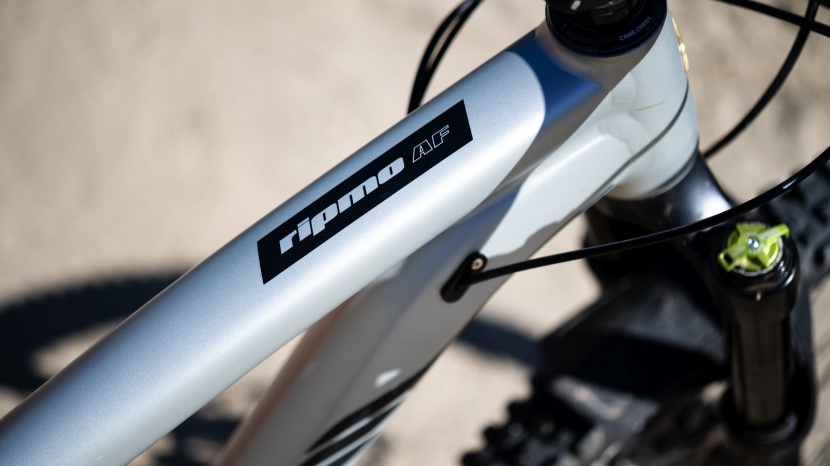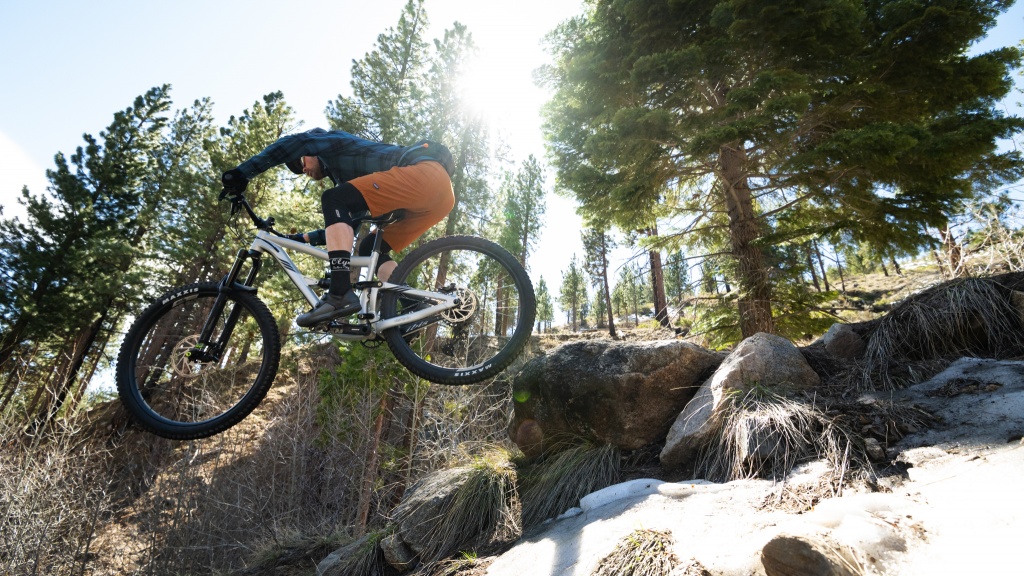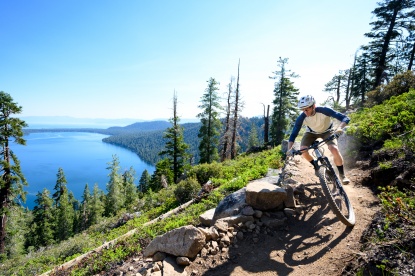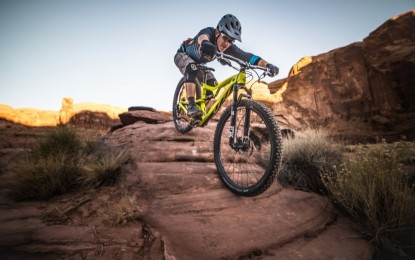Ibis Ripmo AF NX Eagle Review

Our Verdict
Our Analysis and Test Results
Should I Buy This Bike?
An aggressive trail bike doesn't have to cost a fortune; if your budget is less than $3000, rejoice at the value found in the Ripmo AF. Ibis doesn't usually come to mind when we think of budget bikes, but their AF frames have flipped the script. The stout aluminum frame is burly with progressive modern geometry (read: longer and slacker) and has updated rear suspension kinematics to make it even harder charging than its predecessor. This bike has no speed or terrain limits, yet it still maintains a sporty and playful demeanor and is fun to ride on a huge range of trail types and rates of speed. A lightweight rig, it is not, at 34 lbs (size large), you'd expect something lethargic, but the Ripmo is anything but. The component specification is outstanding for the price; it's easily one of the best values for an aggressive trail bike we've tested.
Ibis also recently redesigned the carbon Ripmo; the V3 isn't drastically different. The new carbon frame is 2 pounds lighter and has downtube storage, but most of the basics remain the same. Carbon Ripmo V3's start at $4,999 for the Deore build, and the range-topping XO build sells for $8499, before the wheel upgrade.
Frame Design
The AF in the Ripmo AF moniker stands for aluminum frame. The beefy frame has 147mm of rear travel controlled by a DW-link suspension design. DW-link is a dual-link design with the lower link attached to the seat tube about 2 inches above the bottom bracket and the upper link attached a little less than halfway up the seat tube. Ibis adjusted the suspension kinematics to make it more progressive than the original Ripmo. Like the Carbon models, the AF also has internal cable routing and built-in chainstay protection, and the front triangle still has room for a water bottle. It comes in sizes S-XL with short seat tubes and low standover heights across all sizes.
We measured our size large Ripmo AF and found a 64.9-degree head tube and a 76-degree seat tube angle. The effective top tube length was 631mm with a 473mm reach. The bottom bracket measured 340mm off the ground with 435mm chainstays and a 1239mm wheelbase. At the weigh-in, it tipped the scales at a hefty 34 lbs with tubeless and no pedals.
Design Highlights
- Aluminum frame (AF)
- 29-inch wheels only
- 147mm of DW-link rear suspension
- Designed around a 160mm reduced offset fork
- Compatible with air (tested) and coil shocks
- Clearance for up to 2.6-inch tires
- Threaded bottom bracket
- Internal cable routing
- Complete bikes starting at $2,999 (tested)
Downhill Performance
The Ripmo AF really comes to life when pointed downhill and speeds increase. This bike is long and slack and ready to take on the gnarliest trails and fastest speeds you're willing to point it down. It isn't just a bruiser, however, and it performs well at a range of speeds and trail types with most of the agility and sportiness of the original Ripmo intact. Thoughtful components like excellent suspension, wide rims, and burly tires enhance this bike's downhill performance.
The Ripmo AF took all the best things about the Ripmo V2 and made it full metal. The front end sits at 64.9 degrees, and the wheelbase is a lengthy 1239mm (size large). The reach is a comfortable 473mm with reasonably short 435mm chainstays. This keeps the bike even more confident in steep and super-aggressive terrain and enhances its stability at speed. It hugs the ground and feels planted and unflinching as speeds increase. The long wheelbase impacts its low-speed handling and maneuverability ever so slightly, but its a worthy tradeoff. Despite the added length, the short chainstays keep the rear end of the bike feeling lively, and it likes to manual and catch air at every opportunity.
With 147mm of DW travel and tweaked suspension kinematics, the Ripmo AF is more progressive at the end of the stroke. We spent plenty of time in the air with questionable line choices and nasty landings to put this to the test, and we found the added progressivity made a noticeable improvement to big-hit performance. At the same time, the small bump compliance remains outstanding, and the mid-stroke is nice and supportive.
As mentioned above, the quality of the suspension on the Ripmo AF is far better than we're accustomed to finding on a sub $3000 bike. Ibis didn't skimp when it came to the wheels and tires either, rolling on Ibis S35 wheels with Ibis logo hubs. These rims have a 35mm internal width that pairs very well with the matched set of 2.5" wide Maxxis Assegai tires with the beefy EXO+ casing. These aggressive tires have outrageous cornering and braking traction that is only enhanced by the supportive sidewalls and wide rims that allow for lower tire pressures. The 170mm length dropper (on our size large) helps get the saddle low and out of the way on descents, while the short stem and 780mm handlebar provide plenty of leverage to pound through rock gardens and smash corners at Mach speeds. The least confidence-inspiring aspect of the build is the SRAM Guide T brakes. While they have 4-piston calipers and centerline rotors, the levers aren't great, and they feel a bit under-gunned on this bike.
Uphill Performance
Considering its long and slack geometry and heavier weight, the Ripmo AF is no slouch on the climbs. At 34 lbs in size large, it's not zippy like some short-travel carbon bike, mind you, but it has good angles and a steady pedaling platform. It probably won't make most people any faster up the climbs, but its comfortable and can claw its way up just about anything.
The original carbon Ripmo was a bit of a unicorn on the uphills, an aggressive trail slayer with mythical climbing abilities. This was thanks mostly to the modern geometry that included a healthy reach and steep 76-degree seat tube angle. The steep seat tube angle carries over to the Ripmo AF. It lines the rider up quite directly above the bottom bracket for super-efficient power transfer and a comfortable seated pedaling position. The 473mm reach is generous, but never feels too long or stretched out thanks to the steeper seat tube angle. The 64.9-degree head tube angle is quite slack, and the 1239mm wheelbase is certainly bordering on long, motoring up straightaway, and powering over obstacles is no problem. Thanks to the steep seat tube and reduced offset fork, however, the bike remains more maneuverable than you'd expect. Tight uphill switchbacks and technical sections of trail are manageable, but proper line choice still goes a long way. Testers did note, however, that pedal strikes were quite common if care wasn't taken while pedaling through chunky rocks.
The DW-link rear suspension provides a relatively supportive pedaling platform, and the DVO Topaz rear shock is tunable to your preferences, plus it has a three-position compression damping/climbing switch. The rear suspension's performance on the climbs will be dependent on how you tune the rear shock, and we found our middle of the road pressure settings to provide a relatively calm platform while seated and pedaling in the open position. Out of the saddle efforts resulted in noticeable pedal bob, and more often than not, we found ourselves flipping the switch to the livelier medium mode for extended singletrack grinds. In both the open and medium positions, the rear suspension smoothes small bumps in the trail like they aren't even there, and the active rear suspension provides outstanding traction. On smooth fire roads and pavement, the firm position, which feels close to a complete lockout, was preferred for efficiency.
The component specification of the NX Eagle build we tested leaves little to be desired on the climbs. The SRAM NX Eagle drivetrain is far from flashy, but it is plenty functional and provides adequate range for any steepness of climb. The Maxxis Assegai tires are far from lightweight or fast-rolling, but they have tenacious climbing traction on virtually all surfaces. The WTB Silverado saddle is also a crowd pleaser and proved to be a comfortable spot to sit and grind away the miles.
Photo Tour
Value
At a retail price of just $2,999, the Ripmo AF NX is an outrageous value for a high-performance aggressive trail bike from a high-end manufacturer like Ibis. We know that's still no drop in the bucket, but considering the price of most bikes these days, we feel it is very reasonably priced. The build is impressive, and this thing is ready to rip straight out of the box with quality suspension, wheels, and tires that are well suited to this bike's hard-charging attitude. We think it's refreshing to see some of the major manufacturers making an effort to make their bikes more affordable and more accessible to more riders.
Conclusion
It was only a matter of time until the prices of complete mountain bikes started to drop out of the Stratosphere. Ibis came to the more affordable bike party dressed to impress with the Ripmo AF. If you're looking for a hard-charging aggressive trail bike that is still versatile enough to do it all, we feel this is easily the best you'll find at this price.
Other Versions
The Ripmo AF is available as a frame only with a Marzocchi Bomber Air shock for $1,649. While this is a stellar deal, the value from the Ibis complete builds are the ones to grab.


